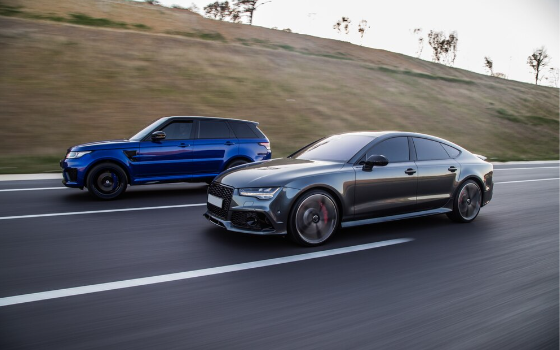Choosing the right car can be a daunting task, especially when faced with the decision between an SUV and a sedan. With a wide selection of models available, it’s essential to consider your driving needs and preferences. Both SUVs and sedans offer distinct advantages, making it crucial to conduct thorough research and determine which features are most important to you.
In this comprehensive comparison guide, we will delve into various aspects such as driving experience, comfort, affordability, fuel efficiency, and personal requirements. By considering these factors, you’ll be well-equipped to make an informed decision that suits your lifestyle.
Helpful Tip:
When selecting a new vehicle, consider the environment and climate where you primarily drive. If you frequently encounter icy roads due to living in a colder climate, an SUV with all-wheel drive (AWD) is typically the best choice. However, it’s worth noting that several sedans now come equipped with AWD, offering this feature even in smaller cars.
Sedan vs. SUV: Which Offers a Better Driving Experience?
When it comes to the driving experience, sedans and SUVs have distinct characteristics. Sedans are renowned for their maneuverability, making them ideal for city driving and navigating small roads with ease. Their sleek design allows for effortless maneuvering in tight spaces, providing a nimble and agile feel. On the other hand, SUVs excel in terms of road visibility and control.
With their elevated driving position, SUVs offer enhanced visibility, allowing drivers to have a better sense of the road ahead. This advantage is particularly valuable when encountering challenging road conditions such as wet or icy surfaces. Additionally, many SUVs are designed for off-road adventures, but it’s crucial to research specific models to ensure they possess the necessary capabilities for your desired terrain.
Sedan vs. SUV: Which Embraces Comfort?
Comfort is a significant factor in determining the right vehicle for your needs. SUVs typically offer more space for both passengers and cargo due to their larger size. This makes them an excellent choice for families or individuals who frequently embark on road trips and require ample room for both passengers and their belongings.
However, compact SUVs can provide comparable cargo and passenger capacity to sedans, making them a viable option for smaller families or those with moderate space requirements. If maximum cargo space is a priority, full-size SUVs with third-row seating can accommodate larger groups, comfortably seating seven to eight individuals along with their luggage.
Sedan vs. SUV: Which Fits Your Budget?
Affordability is a crucial consideration for many car buyers. It’s important to research car prices and take into account associated costs before making a decision. Additionally, insurance rates can vary between SUVs and sedans, so consulting with your insurance provider like tutenagency, an exclusive agent with Allstate to understand the potential financial implications is advisable. By carefully considering your financial situation and comparing costs, you can make a well-informed decision that aligns with your budgetary constraints.
Sedan vs. SUV: Which Offers Better Fuel Efficiency?
Fuel efficiency is a significant concern for those conscious of environmental impact and long-term fuel costs. In general, sedans and small crossovers tend to have better gas mileage compared to larger SUVs. If excellent fuel efficiency is a priority, opting for a sedan or small crossover will help you save on fuel expenses.
However, it’s worth noting that advancements in technology have led to the availability of hybrid and electric options in both SUVs and sedans. These options provide improved fuel economy without compromising on space or performance, offering a greener and more cost-effective solution.
Sedan vs. SUV: Which Vehicle is Right for You?
Ultimately, the choice between an SUV and a sedan hinges on your specific needs and preferences. Consider your driving habits, such as off-roading or towing requirements, as well as the type of roads you typically encounter, such as city driving or tighter roads.
Evaluate your comfort level with the height and control an SUV provides, and assess your cargo space needs. Additionally, ensure that the safety features of the chosen vehicle are up-to-date, prioritizing your well-being and that of your passengers. By asking yourself these vital questions and considering the outlined factors, you’ll be empowered to make an informed decision that suits your lifestyle and fulfills your driving expectations.
Summary
Choosing between an SUV and a sedan requires careful consideration of various factors, including driving experience, comfort, affordability, fuel efficiency, and personal requirements. By evaluating the advantages and trade-offs of each vehicle type, you can make a decision that aligns with your needs and preferences.
Remember to assess your driving habits, cargo space requirements, and overall budget when making a choice. Whether you prioritize maneuverability, space, affordability, or fuel efficiency, there is an option available that will meet your expectations. Take your time, conduct thorough research, and select the vehicle that brings you joy and satisfaction on the road.
FAQs
Can I expect better resale value from an SUV or a sedan?
Understanding how SUVs and sedans depreciate over time can help you make a decision that’s not just about the purchase price but also about the potential return on investment when you decide to sell.
Are there differences in insurance costs between SUVs and sedans?
Insurance premiums can vary significantly between vehicle types. Knowing how sedans and SUVs stack up in terms of insurance costs could impact your overall budget.
How does the choice between an SUV and a sedan affect driving in urban versus rural areas?
Depending on where you live and drive, the practicality of maneuvering and parking an SUV versus a sedan can vary greatly.

